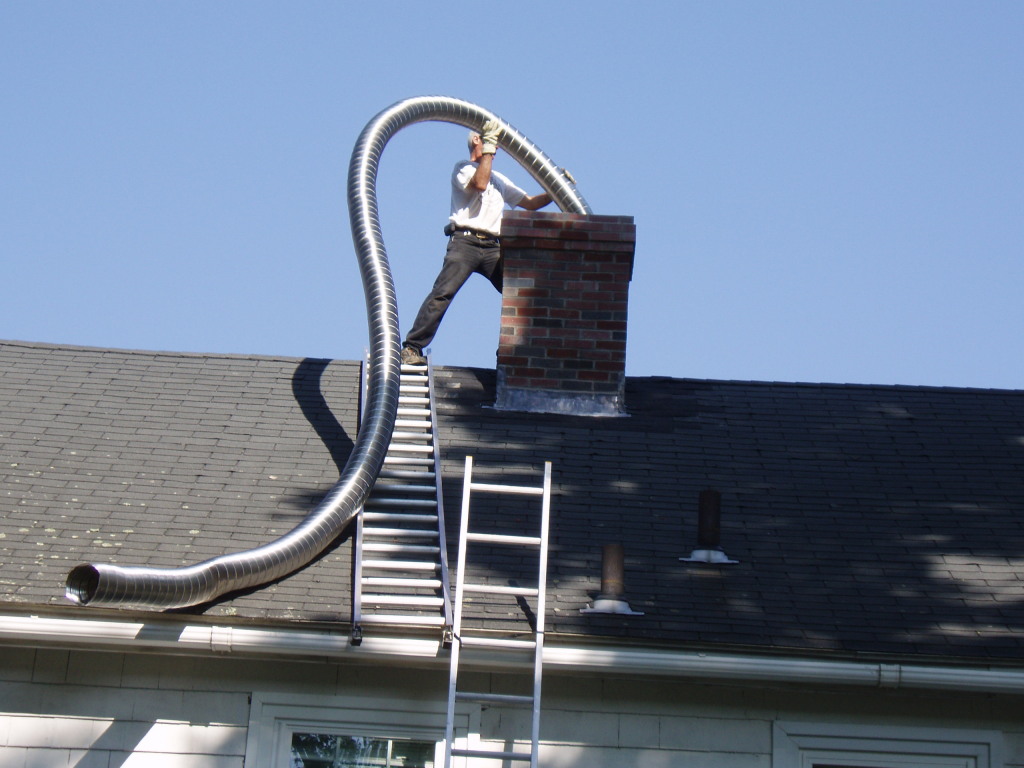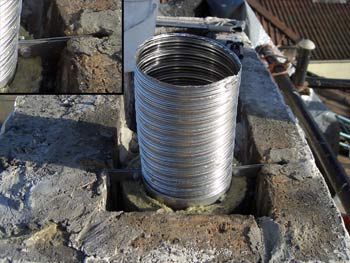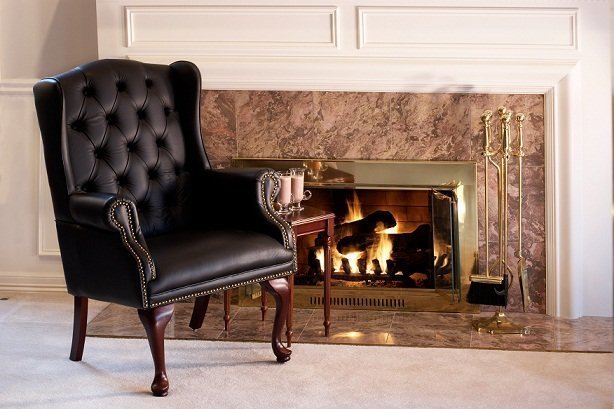What is Flue Liner?
The flue liner is installed into your chimney. Its job is to act as an insulator and prevent cold air from coming down the chimney. This not only saves energy but makes the chimney a lot safer to use. There are many different types of flue liner and the type of liner your chimney has will depend upon the age of the building, the cost, and whether you have a gas or an electric fire. The different types of flue liner include;
- Old-fashioned clay lining (not well insulated)
- Metal (modern)
- Fabric (modern)
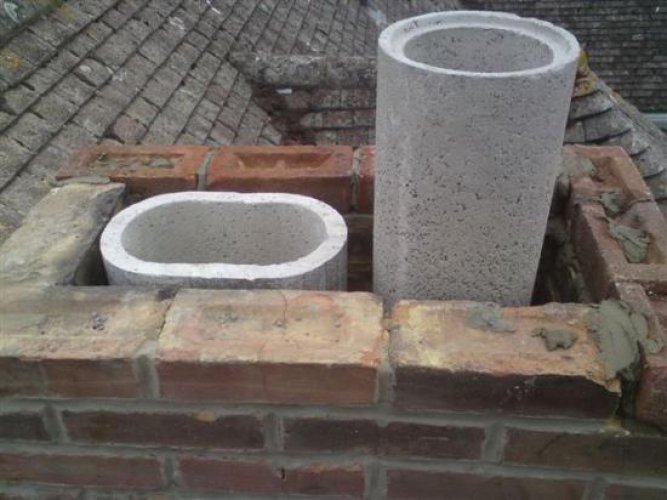
What Does Flue Liner Do?
Flue liners are mainly used to protect you from smoke that can be pushed back down through the fireplace and into your home. Old chimneys are more susceptible to this primarily because of age, as flue liner in many chimneys is old and people neglect to replace it. Heat in the chimney, especially in old chimneys, can cause the mortar to erode. This can damage the state of the brick, leaving you and your home vulnerable to smoke coming back down the chimney instead of filtering out.
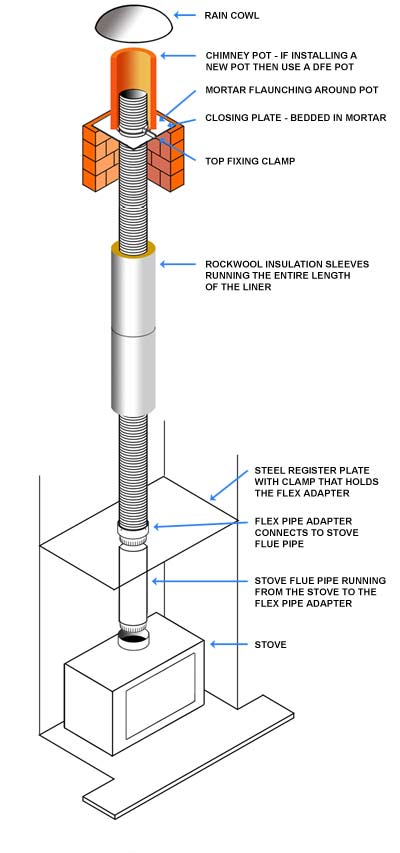
The Benefits of Flue Liner
Protects you from Smoke
Having suitable flue liner helps prevent downdraft in your chimney, which can reduce the smoke that comes back out through your fireplace. I don’t need to tell you that smoke inhalation is bad for you, and even if there is not much obvious smoke coming into your home, you may be inhaling harmful chemicals and smoke without even realising.
Insulates Chimney
Heat can be lost through the brick of a chimney, especially during the cold winter months. Flue liner also acts as an insulator, which prevents the heat from escaping as easily.
Prevents Water from Condensing in the Chimney
This could damage roof tiles and cause your chimney many problems. Moisture is a chimneys worst enemy, which makes it unfortunate that there is a portion of it that is constantly exposed to the elements. But there are preventative measures and maintenance that you can do to ensure that your chimney is kept in the best possible condition. This will not only reduce the need for costly repairs; it will also help keep you safe.
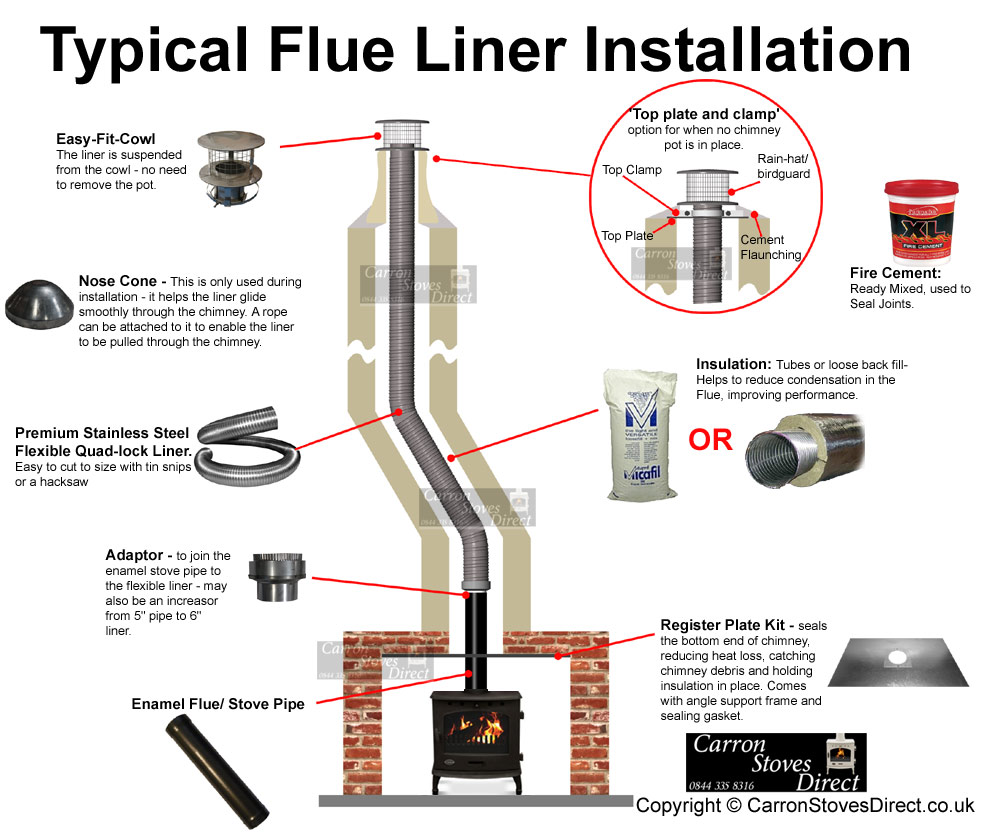
Why is it Important to Maintain and Replace Flue Liner?
As with everything, flue liner also becomes less effective as time goes on. Natural wear and tear play a huge part when it comes to flue liner getting damaged or becoming ineffective.
Ensuring you get regular chimney inspection will help ensure that your chimney is kept in good condition and that any small problems are picked up on and fixed before they turn into major problems. Some inspection can be done from the ground looking up to check any obvious damage on the outside of the chimney and the surrounding roof. A professional inspection is required to closely check the chimney both inside and out.
